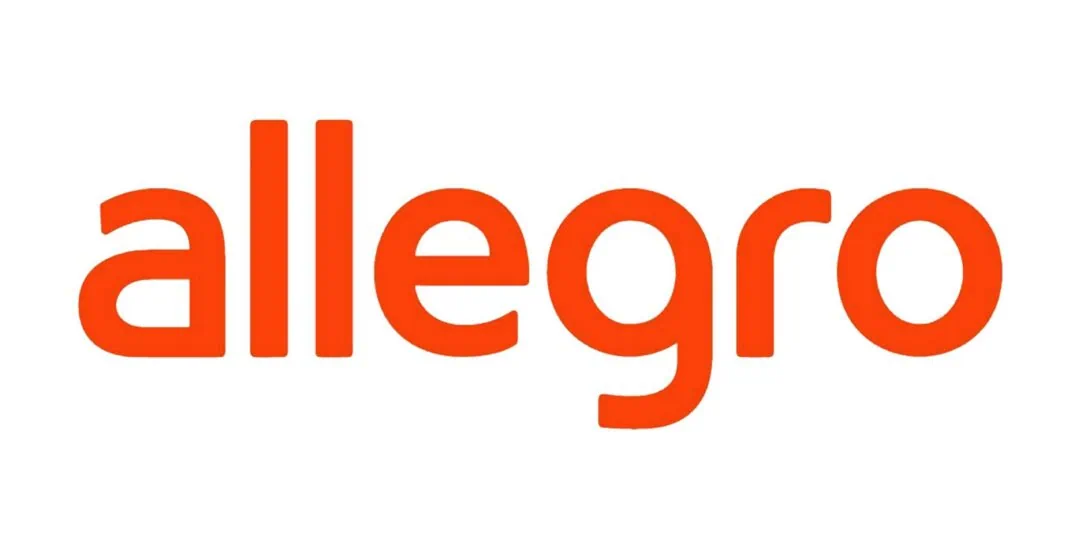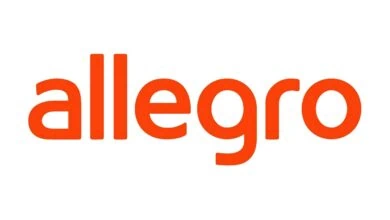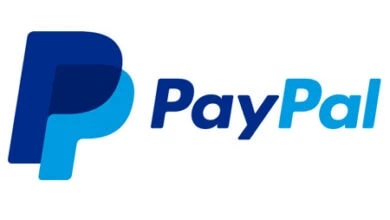Allegro’s financing initiative for sellers – what it means and how to benefit

Allegro’s financing initiative for sellers is a timely development for merchants who need fast and simple access to capital. Allegro, a leading online marketplace from Poland founded in 1999, has grown well beyond its home base. It expanded into Slovakia last year and reported a turnover of 2.6 billion euros in that same year. With that scale, any change that Allegro makes can ripple across thousands of businesses. This new step is built around a partnership with PKO Bank Polski and aims to unlock fresh growth for entrepreneurs who sell on the platform. It is also paired with a new payment method that offers cashback to shoppers, which can help boost customer satisfaction and conversion.
Why does this matter today. Many sellers face uneven cash flow across the year, especially when demand spikes. Stocking up for a peak season, launching a new product line, or simply bridging a short gap between orders and payouts can be tough without a ready source of funds. Allegro’s financing initiative for sellers addresses that pain by offering business loans based on a seller’s track record on the platform. That means less paperwork and a quicker decision, which is crucial when the market moves fast. The plan is ambitious too. Over the next three years, Allegro Kapital aims to finance 20,000 entrepreneurs with a total of 350 million euros. Those numbers show clear intent to support growth at scale.
Speed and simplicity are the standout features. According to PKO Bank Polski, after assessing creditworthiness, the loan decision is made in about three minutes, and funds are disbursed within 24 hours. For a merchant trying to restock a bestseller or secure a short-term opportunity, that timeline can make a real difference. Allegro’s financing initiative for sellers is designed to let businesses respond in real time to changing market needs. It shows a marketplace leaning in to help its community thrive, not just by providing a storefront but also by giving access to capital and easier payments. In short, it is a meaningful step that lines up with the daily realities of ecommerce.
The partnership and scope – Allegro Kapital with PKO Bank Polski
The financing rollout is built on a new partnership between Allegro and PKO Bank Polski. Together, they are launching Allegro Kapital and introducing two services before the end of this year. The first service focuses on financing for businesses. The second adds a payment method that offers cashback and lets customers stay inside the Allegro app to complete a purchase. By joining forces with a major bank, Allegro can combine deep platform insights with banking know-how. That pairing helps bring trustworthy lending to sellers while keeping the experience simple and familiar.
Allegro’s financing initiative for sellers sits at the center of this partnership. Allegro Kapital will provide loans that reflect a seller’s performance on the marketplace. Instead of asking for stacks of documents, the system evaluates an on-platform track record. This approach reduces friction and keeps the process quick. It also fits the way ecommerce works today, where data on sales, returns, and customer ratings help paint a clear picture of a business’s health. With PKO Bank Polski handling credit assessment and disbursement, sellers get the confidence of a bank-backed offer with the speed of a digital experience.
The scope is notable. Allegro Kapital plans to support 20,000 entrepreneurs within three years and to finance a total of 350 million euros. For a marketplace that already spans multiple countries and categories, this level of support can help many small and mid-sized businesses handle seasonal cycles, invest in stock, or test new markets on the platform. The new payment method adds another layer. Customers can link their PKO Bank Polski account to Allegro, pay without leaving the app, and earn cashback. Together, these changes promise a smoother shopping experience and a stronger seller toolkit. Allegro’s financing initiative for sellers is, therefore, not a single feature but a set of connected levers created to support growth.
How the business loans work – limits, timing, and access
At the heart of Allegro’s financing initiative for sellers are business loans that are quick to apply for and fast to fund. Sellers on the marketplace can apply today for up to 71,000 euros, which equals 300,000 Polish zloty. The plan is to increase that ceiling in 2026, when eligible business loans can reach up to 118,000 euros, or 500,000 Polish zloty. The lending margin is set at 6 percent. While every business should judge costs in the context of its own margins and turnover, that stated margin helps sellers weigh the value of speed and flexibility against the price of capital.
One of the most important parts is how loans are evaluated. Allegro and PKO Bank Polski base the decision on a seller’s track record on the platform rather than on separate paperwork. Sellers do not need to provide documents or certificates as part of the application. According to PKO Bank Polski, after creditworthiness is assessed, the decision is made in about three minutes. Then, funds are released within 24 hours. For many entrepreneurs, that timeline is a leap forward. It reduces the window between spotting a business need and having the cash to act on it.
Allegro’s financing initiative for sellers is also built for clarity. The loan program makes its basic pieces plain. There is a current limit, a planned higher limit in 2026, a margin, and a fast decision-to-disbursement path. This clarity can help owners plan with confidence. For example, a merchant who sells fast-moving products can map out a restocking plan knowing that funds could be available within a day of approval. Another seller might use a loan to widen a product range before a holiday surge. Because the decision is based on platform performance, steady and transparent selling can pay off in access to capital. The result is a tool that respects how online businesses operate and gives them room to move quickly when opportunity calls.
Strategic advantages for merchants – inventory, cash flow, and growth
Allegro’s financing initiative for sellers offers practical advantages that line up with daily ecommerce challenges. The most obvious is inventory. When demand climbs, even strong businesses can run short of stock. With fast access to funds, a seller can place a larger purchase order, secure better supplier terms, or split shipments to meet deadlines. That can protect a hard-won search ranking or Buy Box position and keep customers happy. The second advantage is cash flow smoothing. Gaps between expenses and payouts can strain a small business. Timely financing can close that gap so a merchant avoids stockouts and late deliveries, which often cost more in the long run.
There is also a growth angle. Allegro leaders describe the goal as simplifying access to financing so sellers can react in real time to changing market needs, prepare for peak seasons, and build competitive advantages. In practice, that can mean testing a new category, buying materials ahead of a holiday, or scaling a bestseller while demand is hot. Because the loan decision can arrive within minutes and funds can follow within a day, planning becomes more dynamic. Sellers can set clear targets for sales and inventory, then match financing to those targets. That rhythm helps turn short windows of demand into lasting gains.
Allegro’s financing initiative for sellers also sends a signal. It shows the marketplace is investing in its community, not only by hosting listings but by backing business development. That can attract more entrepreneurs to the platform and encourage existing sellers to aim higher. The margin is known. The timeline is clear. The program’s scope is public. When those pieces are put together, merchants can make decisions with less guesswork. They can decide when a loan fits, how much to request, and how to measure the return. In short, this initiative gives sellers a financial lever that is aligned with the pace and patterns of ecommerce.
What the new payment method brings – seamless checkout with cashback
The partnership introduces more than lending. Allegro and PKO Bank Polski are also launching a payment method with cashback. This feature lets customers link their bank account at PKO Bank Polski to their Allegro account. Shoppers can then pay without leaving the Allegro app and can earn cashback while doing so. That matters because every extra click in a checkout can increase drop-off. By keeping buyers inside the app and adding a clear reward, the platform reduces friction and boosts satisfaction.
For sellers, the effect can be indirect but meaningful. A smoother and faster payment experience often supports higher conversion and fewer abandoned carts. Cashback can also encourage repeat purchases and larger baskets as customers seek to make the most of the benefit. Allegro’s financing initiative for sellers pairs nicely with this payment upgrade. On one side, merchants get easier access to capital to stock the right items. On the other side, customers get an easier way to pay that can lift demand. When both sides improve at the same time, the overall marketplace can become more efficient and more attractive.
The combined launch also underscores the value of linking financial services to ecommerce journeys. A bank-backed payment method that lives inside the shopping app keeps things secure and familiar. A lending offer that uses platform data speeds up decisions and makes funds more accessible. Together, these changes help sellers and buyers move with confidence. Allegro’s financing initiative for sellers is a central piece of that story, and the new payment method broadens the impact by enhancing the checkout flow. The net result is a stronger marketplace loop where better payments and smart financing support each other.
Looking ahead – scale, timeline, and what sellers can expect
The road map is clear. Over the next three years, Allegro Kapital plans to finance 20,000 entrepreneurs with a total of 350 million euros. Loan limits today reach up to 71,000 euros. In 2026, they are set to reach up to 118,000 euros. The loan margin is 6 percent. The decision time is about three minutes after assessment, with funds typically arriving within 24 hours. These are simple, concrete points that help merchants plan. Allegro’s financing initiative for sellers ties all of this together and signals continued support for business growth on the platform.
As sellers look ahead, the key is to connect financing to a clear plan. While every merchant’s situation is different, many will start by mapping inventory needs around known peaks, identifying products with steady demand, and aligning loan timing with supplier schedules. Because the application is based on performance on the platform and does not require extra documents or certificates, building a strong track record remains essential. Good catalog quality, reliable fulfillment, and consistent customer service help sales and can also strengthen the case for financing by improving platform metrics.
Allegro has grown steadily since its start in 1999 and has expanded internationally, including a move into Slovakia last year. With Allegro’s financing initiative for sellers and the new payment method with cashback, the marketplace is adding practical tools that match how ecommerce operates today. The combination of speed, clarity, and scale is encouraging. It allows entrepreneurs to act quickly, invest wisely, and serve customers better. While the market will always change, sellers who connect funding to focused goals will be well placed to make the most of the opportunities that come their way on Allegro.
Source: https://ecommercenews.eu/allegro-to-finance-sellers-with-350-million-euros-in-3-years/












